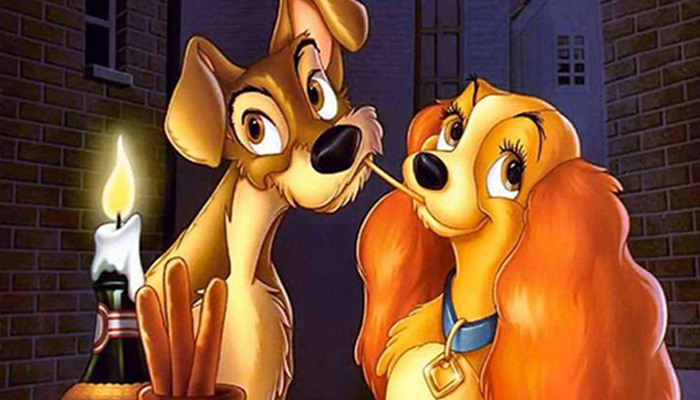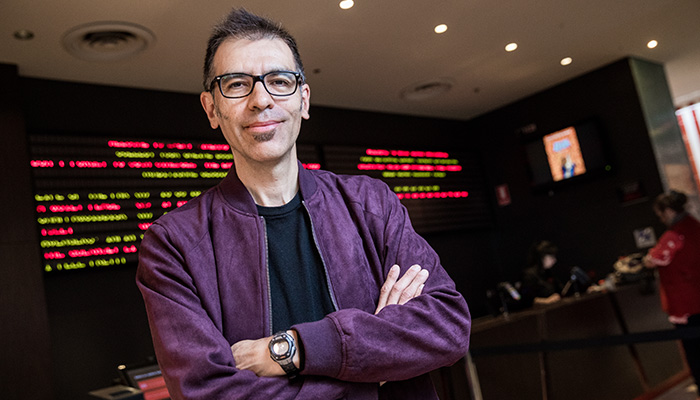If you are planning a romantic dinner on February 14, it may be worth pondering the tradition and nature of romantic love.

Although its name honours St Valentine, a 3rd century Roman saint, Valentine's Day has only been associated with romantic love since the late 14th century, when Geoffrey Chaucer first mentioned it in his political love poem The Parliament of Fowls.
From the medieval troubadour lyrics via the courtly tale of Lancelot and Guinevere to contemporary rom-coms, the ideal of romantic love has profoundly influenced how individuals come to define their personal relationships and sense of identity. Poets such as Petrarch and artists have long lamented the uncertainty and torment of romantic love, while praising it as the greatest pleasure in life.
Today, when it comes to love, extremes meet: the elevation of romantic love to a life-defining experience and the struggles to recognise marriage equality co-exist with the exploitation of romance as a commodity and its feminist critique as a patriarchal ideology. What might philosophers have to teach us about romantic love?
People talk of finding their ‘other half’ in romance, perhaps without realising that this echoes the philosophical discussion of love or eros in Plato’s Symposium. During the course of a banquet, each guest gives a speech praising love, Aristophanes relaying the myth of humans as originally androgynous beings, divided in half by Zeus, and therefore longing to be reunited with their soul mate.
The idea of romantic love as sensual passion, focused on a unique individual providing emotional fulfilment, is a more recent historical idea.
Socrates, reporting what the goddess Diotima revealed to him, describes how love is the desire for beauty and wisdom but is itself neither beautiful nor wise, being the offspring of desire and want.
Socrates describes what has become known as Platonic love, with its movement of ascent or elevation (Diotima’s myth of the ‘ladder of love’), starting from the erotic love of the beauty of an individual body, moving to the love of beautiful minds, love of the laws of one’s community, love of knowledge, and culminating in the intellectual love of the Idea of Beauty -- a metaphysical glimpse of the Idea of the Good itself (the pure Form or Idea of the Good from which we take our everyday moral sense of what counts as ‘good’).
Highest passion v pernicious myth
The idea of romantic love as sensual passion, focused on a unique individual providing emotional fulfilment, is a more recent historical idea. It owes much to the traditions of courtly love, which elevated noble service, chivalrous conduct, and unrequited longing for an idealised and inaccessible Lady to a popular ideal.

The idea of romantic passion as an irrational power that confounds social boundaries, disrupts moral conventions, and offers self-transcendence via the ecstatic union with one’s beloved has become a pervasive cultural myth.
As Lysander says in A Midsummer Night’s Dream, ‘the course of true love never did run smooth’: it requires obstacles, rules, and challenges to be surmounted, whether these be social, psychological, moral or economic (the ‘forbidden’ romance between working-class artist Jack and aristocratic teen Rose in Titanic needed the ship to strike an iceberg in order to give their tale the right romantic pathos).
Is romantic love all that the poets claim it to be? On the one hand, it is valorised as the highest passion, a path to personal authenticity and self-transformation; on the other, it is demonised as a pernicious myth that subordinates women, or that provides a comforting cultural narrative to mask our biological impulses and psychological drives.
Whatever the case, romantic love raises intriguing questions worth pondering over a candlelit dinner.
- The man behind the Tuscan splendour tourists come to see
- Talent show judges favour contestants who perform last
Why are we attracted to or in love with ‘the one’: what makes this individual worthier of my love than somebody else? Do I love him or her because of his or her unique qualities? Or does he or she appear to have such dazzling beauty, intelligence, and wit because I love him or her?
The phenomenon of ‘beauty bias’ is well known (regarding attractive individuals as more intelligent or worthy than they might actually be), but there is also the ‘halo effect’ of romantic love, which enhances my beloved’s qualities, diminishes their flaws, and compels me to justify their character.
The sudden reversal of this positive valuation when love goes wrong suggests something contingent and unstable about how and why we love particular individuals. Does this mean we need ‘reasons’ to love someone to the exclusion of all others? That would seem a terribly instrumental way of approaching romantic love (but consider the practice of ‘trading up’).
A duty to our partners, or our hearts?
Or is romantic love radically unmotivated, an ‘irrational’ passion, having only ‘reasons of the heart’, as Pascal put it, of which reason knows nothing? Classical mythology presented this view of romantic desire, placing the agency for love beyond the lover, who was pierced unbidden by cupid’s arrow – love-struck, as we still say today.
Do I have a duty to love, or to remain faithful to my love once romantic passion starts to wane? Or is our duty, as the romantics had it, to our hearts alone, whichever way they incline?
Philosophical theories of love have sought to address such questions by analysing its nature. There are theories of romantic love as union, as robust concern, as appraisal of value, and as (complex) emotion.
Are the qualities we find attractive in our partner accurate appraisals of their objective qualities, or something of value we bestow upon them because we are in love?
For some philosophers, love is a union of two individuals, the formation of a ‘we’ or ‘us’, yet one in which each partner maintains his or her individuality – something easier said than done.

The eternal question: Associate Professor Robert Sinnerbrink unpicks theories about what happens when one becomes a 'we'.
Some philosophers define it as a motivated form of ‘robust concern’ for the other, caring for his or her wellbeing and flourishing; yet this seems to collapse the distinction between romantic love and loving care or friendship.
Some philosophers theorise that romantic love is defined by a settled appraisal of value in one’s partner; but are the qualities we find attractive in our partner accurate appraisals of their objective qualities, or something of value we bestow upon them because we are in love?
Other philosophers have argued that love is above all an emotion (or a complex of interrelated, not always coherent emotions), which captures the lived experience of love; but this leaves unexplained its moral qualities, its character as an ethical relationship of mutual recognition, which other theories emphasise at the expense of emotion.
Analysing your romantic relationship over dinner, parsing its features and probing its ambiguities, might not feel very romantic, but it might help us overcome the inevitable pain and conflict accompanying the ideals of romantic passion and blissful union.
Thanks to Louise D'Arcens (my long-term Valentine) for her helpful advice and suggestions in writing, What is romantic love?
Robert Sinnerbrink is an Associate Professor in Macquarie University's Department of Philosophy.



